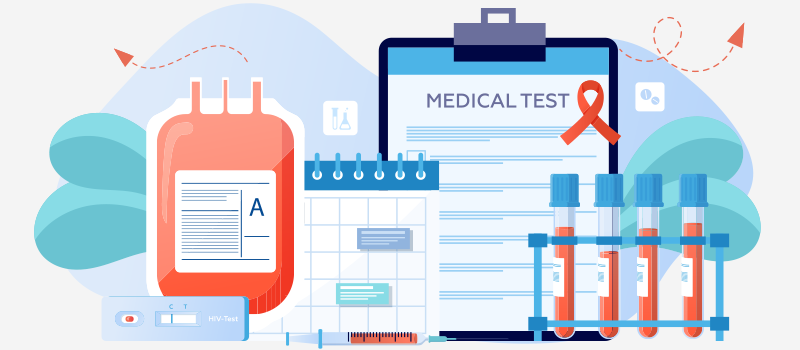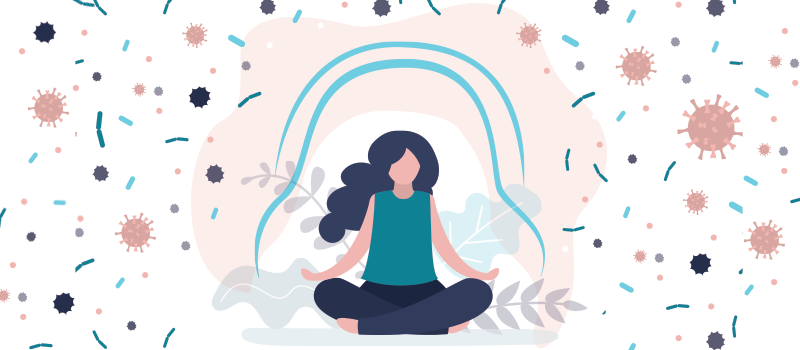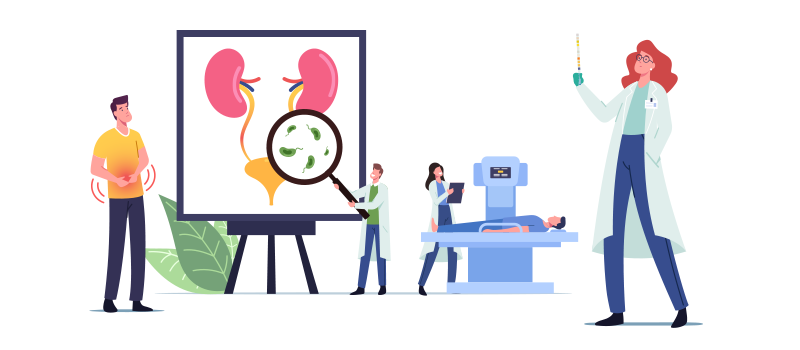Mononucleosis (Mono) Symptoms and Treatments

Mononucleosis, commonly called mono or the “kissing disease,” is a contagious viral infection that spreads mainly through saliva. Please continue reading to find out more about the symptoms of mononucleosis and treatments that can help ease symptoms.
What causes infectious mononucleosis?
Infectious mononucleosis is caused by the Epstein-Barr virus (EBV). This virus belongs to a family that includes viruses that cause herpes and chickenpox. While EBV is the most common cause of mono, other viruses can also cause mono symptoms. EBV is also linked to autoimmune diseases such as rheumatoid arthritis and multiple sclerosis.
How does mono spread?
Mono is an infectious disease that spreads mainly through saliva. You can catch a mono infection by kissing an infected person (which is why it is sometimes called the kissing disease). It can also spread by sharing food, drinks, utensils, and personal items such as a toothbrush with an infected person. Additionally, mono can be transmitted through bodily fluids like blood and semen, including blood transfusions.
According to the Nationwide Children’s Hospital, young kids can contract mono through shared sippy cups, straws, toothbrushes, or toys that have drool on them.
Notably, infectious mononucleosis is less contagious than other common infectious diseases, for example, viral infections caused by viruses spread through respiratory droplets, such as the common cold.
Who is at risk of infectious mononucleosis?
Mono is common among teenagers and young adults. A teenager or young adult will typically develop symptoms 4-6 weeks after exposure to the Epstein-Barr virus. However, not everyone who is exposed to EBV develops symptoms. Approximately 1 out of 4 teenagers and young adults who get infected with EBV develop mono symptoms.
Young children tend to have milder symptoms, and these viral infections often go undiagnosed in them.
Most adults have been infected with EBV by age 35 and don’t develop mono symptoms because they have built antibodies and immunity against the virus. However, people with a weakened immune system may develop mono symptoms more than once.
Is mono a sexually transmitted infection?
Mono (infectious mononucleosis) can spread through bodily fluids such as blood and semen and may be transmitted through sexual contact. Therefore, it can be considered a sexually transmitted infection. However, mono frequently spreads through contact with the saliva of an infected person.
What are the symptoms of Epstein-Barr virus (EBV) infection?
Typical symptoms of an Epstein-Barr virus infection (mononucleosis) include fever, muscle aches, and extreme fatigue. Other common symptoms include sore throat, swollen tonsils, swollen lymph nodes in the neck and armpits, severe headache, skin rash, and an enlarged spleen.
What are the four stages of mono?
The four stages of mono include:
- Incubation period: This is the stage when a person has been exposed to the Epstein-Barr virus (EBV) but has not yet developed symptoms.
- Prodrome: This is the stage when symptoms start.
- Acute stage: This is when the symptoms of mononucleosis worsen.
- Recovery: This is the stage when the symptoms of mono slowly disappear.
How serious is mono?
In most people, mono causes mild symptoms, which, although uncomfortable, go away on their own with rest and fluids. Treatments can help to relieve symptoms such as fever and sore throat. However, other mono symptoms, such as fatigue and swollen lymph glands, can last for a few weeks. This can make it difficult to keep up with school, work, and daily life.
Rare complications of mono include a ruptured spleen. You should call your healthcare provider immediately or seek emergency medical care if you develop sudden pain in your upper left abdomen.
How long does it take for mono to go away?
According to the Centers for Disease Control and Prevention (CDC), most people feel better in 2-4 weeks when symptoms like fever and sore throat abate. The fatigue and enlarged lymph nodes (swollen glands) associated with infectious mononucleosis can last for several weeks. Some people have symptoms of mono for up to 6 months. A swollen liver and spleen can persist even after the other symptoms are gone.
How do doctors diagnose infectious mononucleosis?
Doctors can usually diagnose mono based on common symptoms. Mono is frequently mistaken for Strep throat but does not respond to antibiotics. Laboratory tests are not typically needed to make a diagnosis of infectious mononucleosis. However, if you have severe symptoms, your doctor may order blood tests such as a complete blood count. This blood test may show an increased white blood cell count, atypical lymphocytes (abnormal-looking white blood cells), and a decreased number of neutrophils and/or platelets. More white blood cells are the body’s way of fighting infection. You may also have abnormalities on liver function tests.
What is the best treatment for mononucleosis?
The best treatment for mononucleosis is rest, fluids, and over-the-counter medications for fever and pain. Your doctor may prescribe steroid medicine for swollen tonsils. You should avoid contact sports until you are fully recovered from infectious mononucleosis because not only are they strenuous, but they can also increase your risk of serious complications such as a ruptured spleen, which requires emergency surgery.
How to prevent mono?
There is no vaccine to protect against infectious mononucleosis. You can lower your risk of acquiring the infection by not kissing or sharing food, drinks, utensils, or personal items with anyone who has infectious mononucleosis. These precautions are especially necessary for people with weakened immune systems.
References:












SOCIAL